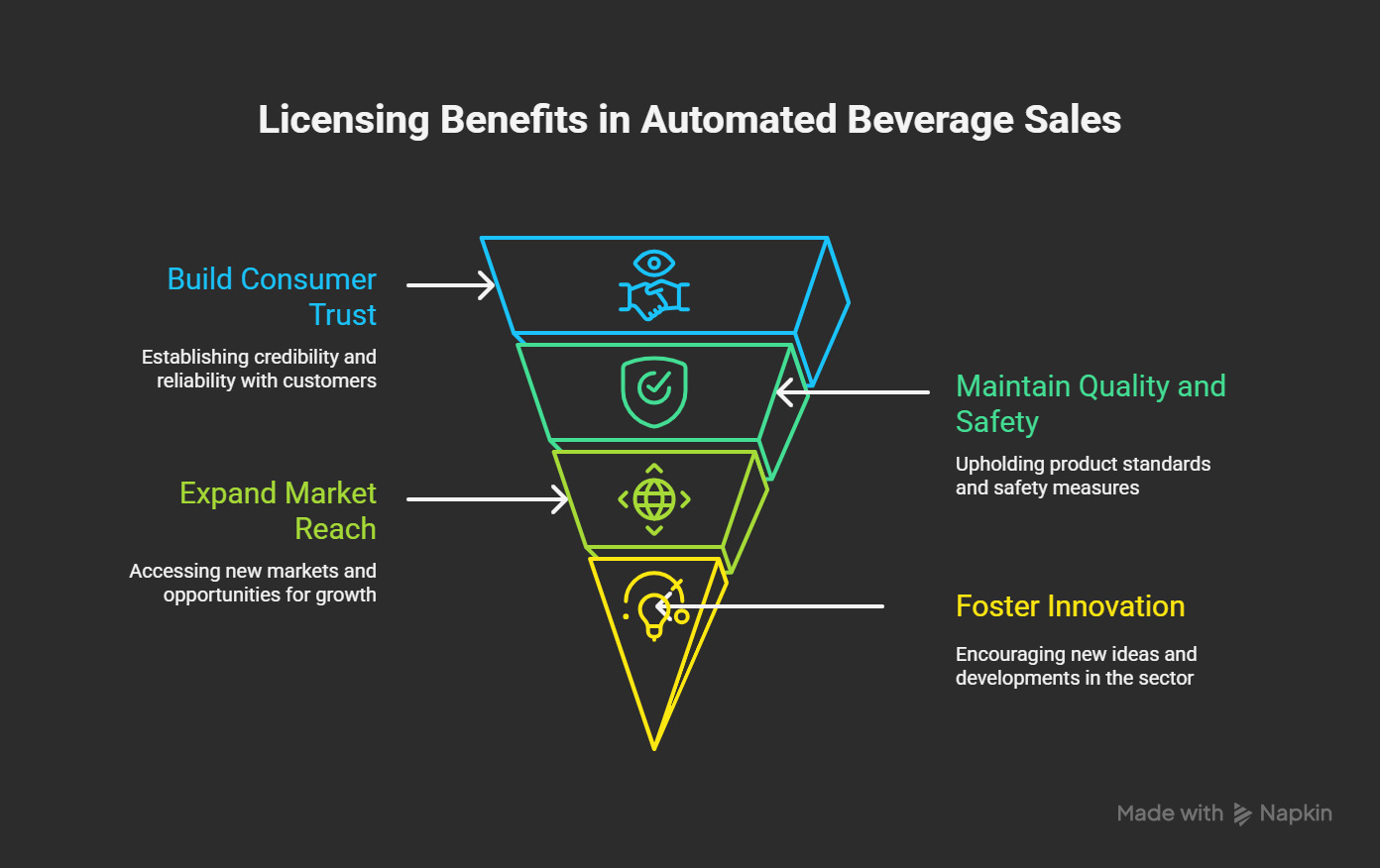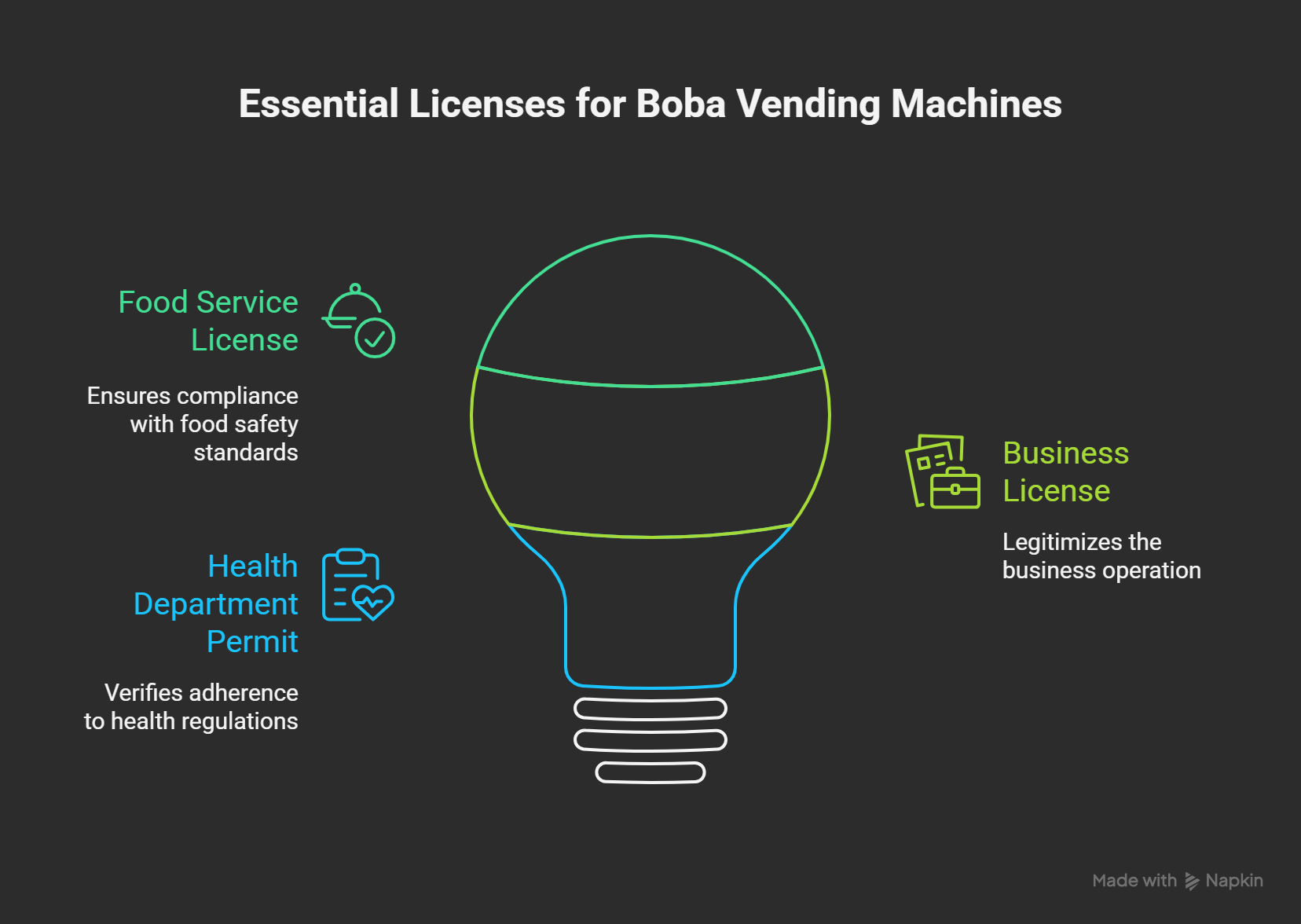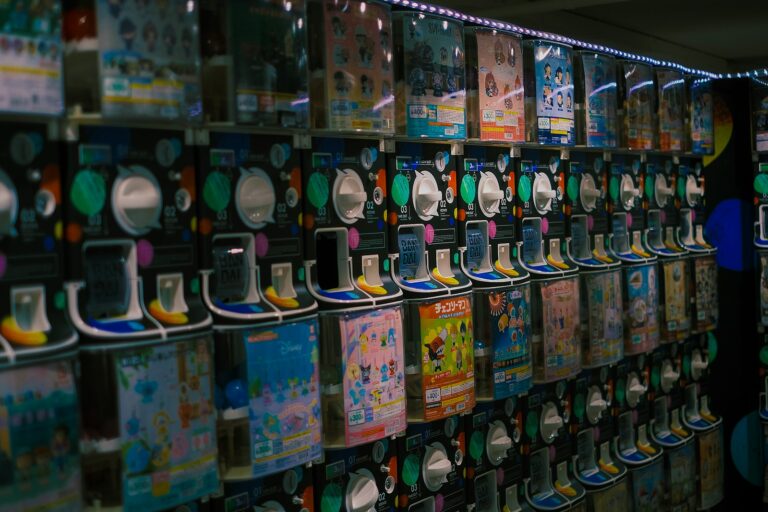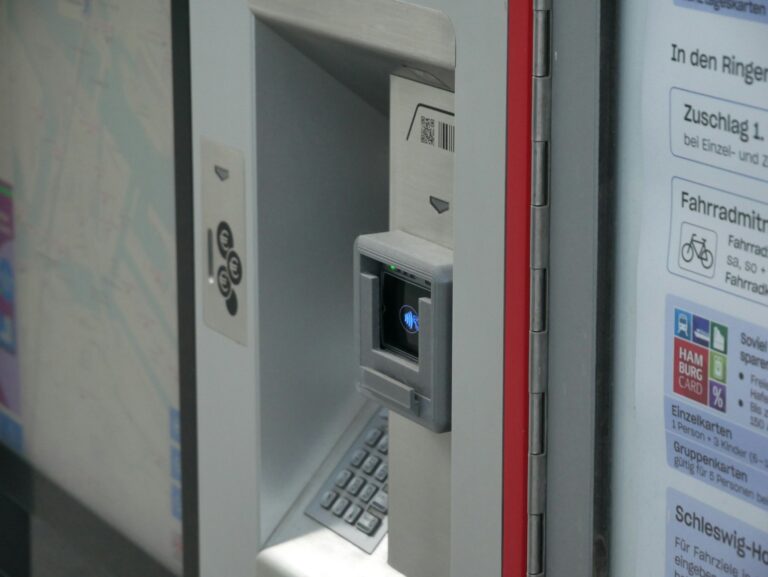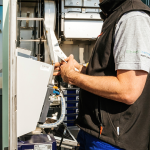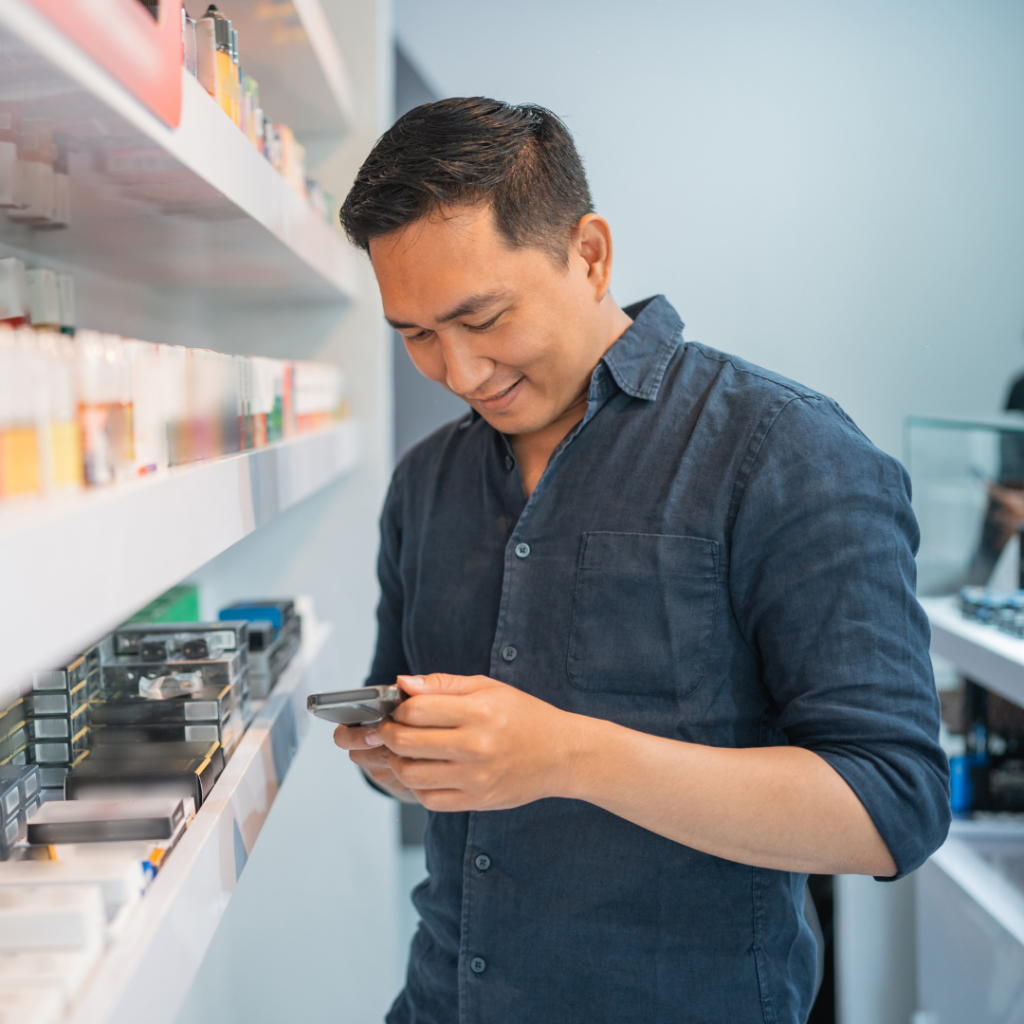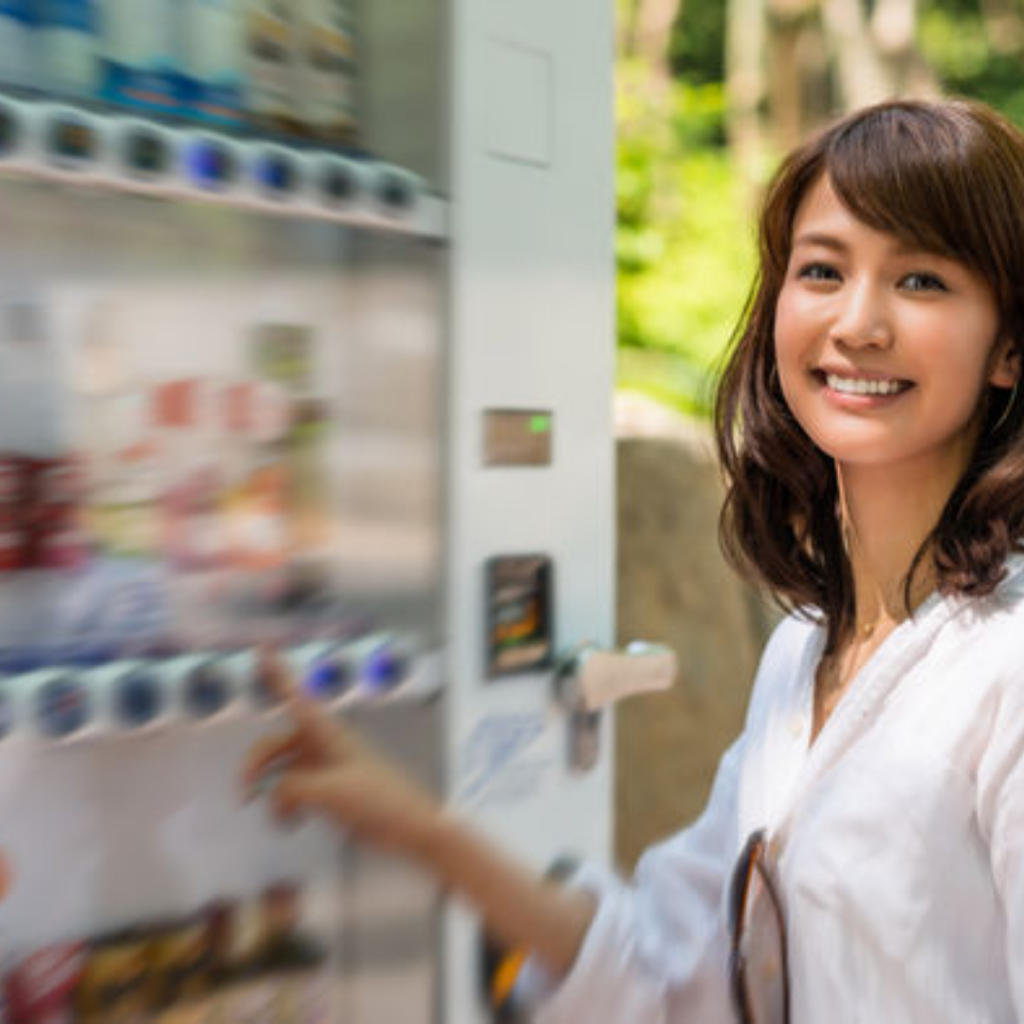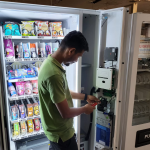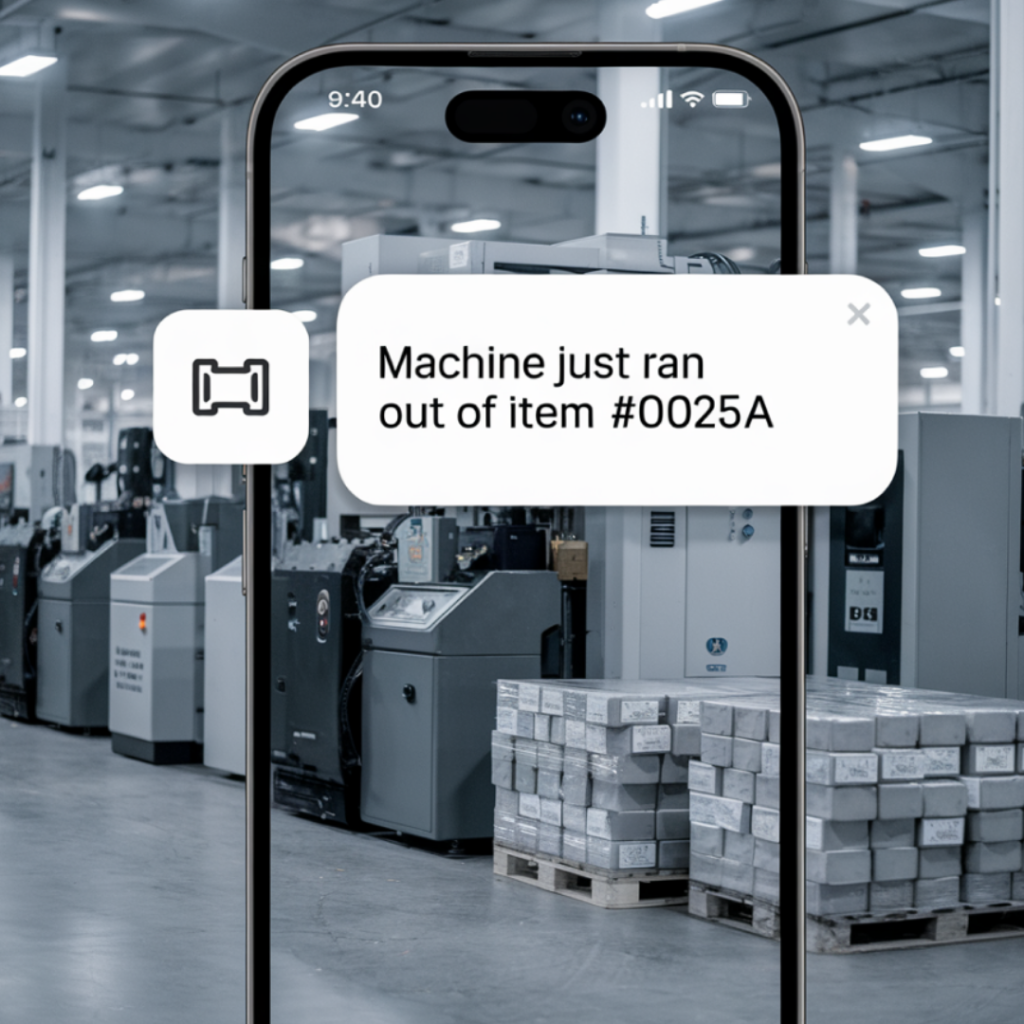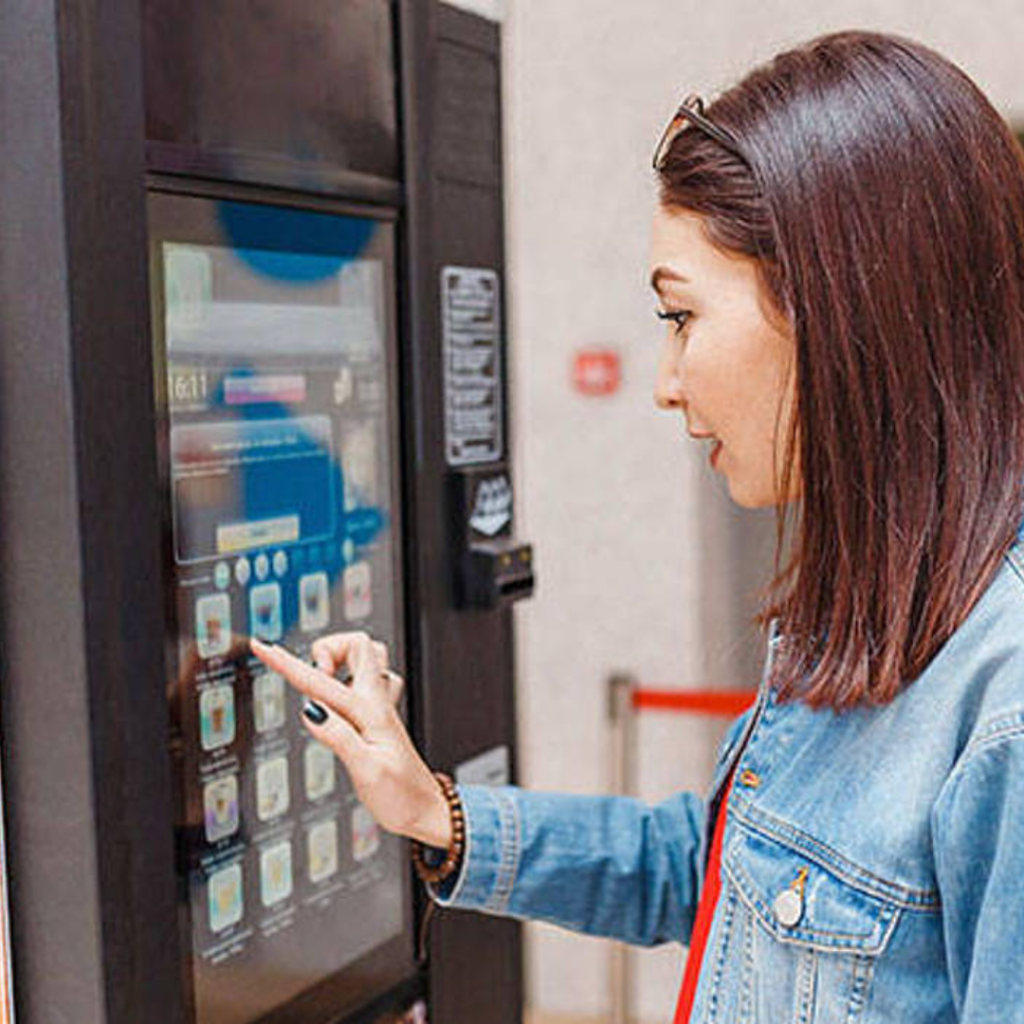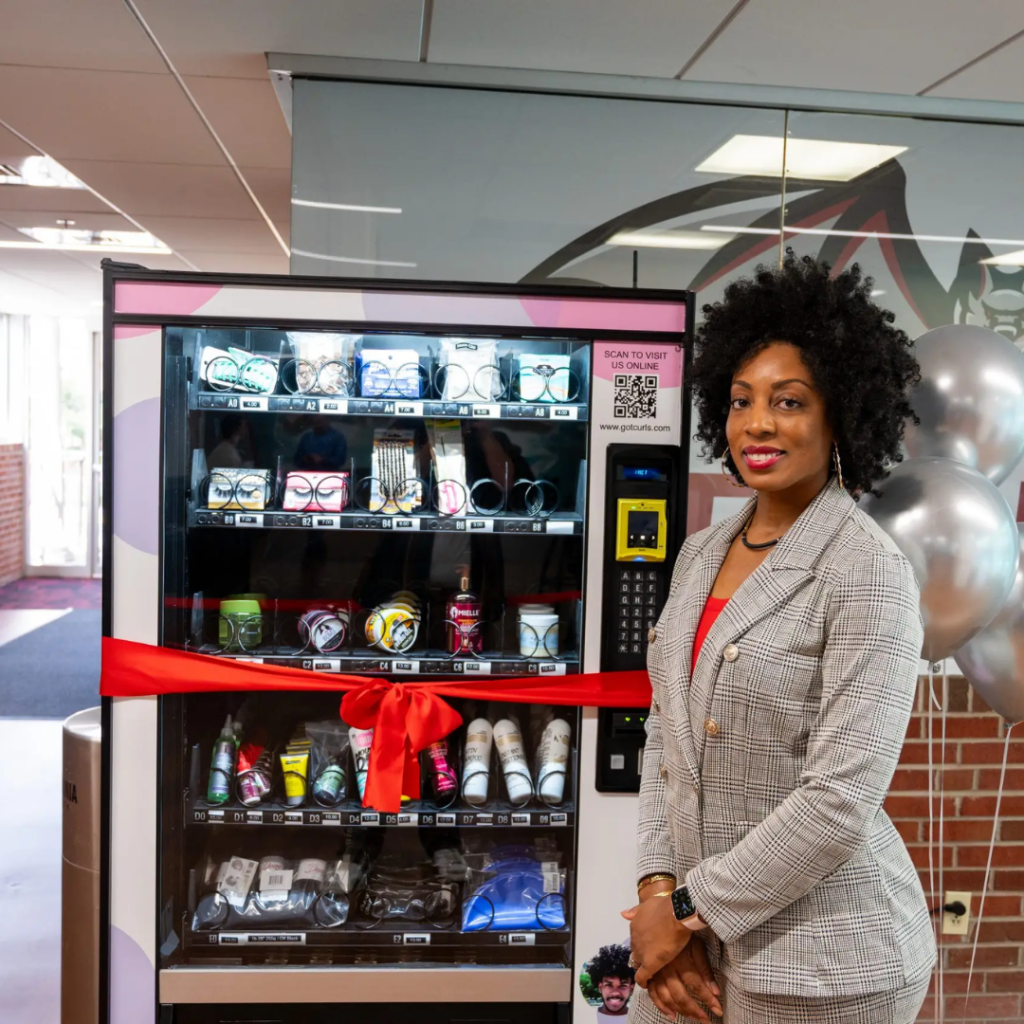Export ready American built machines in stock, shipping from Miami
Do I Need A License To Sell Boba? Here’s What Every Vendor Should Know
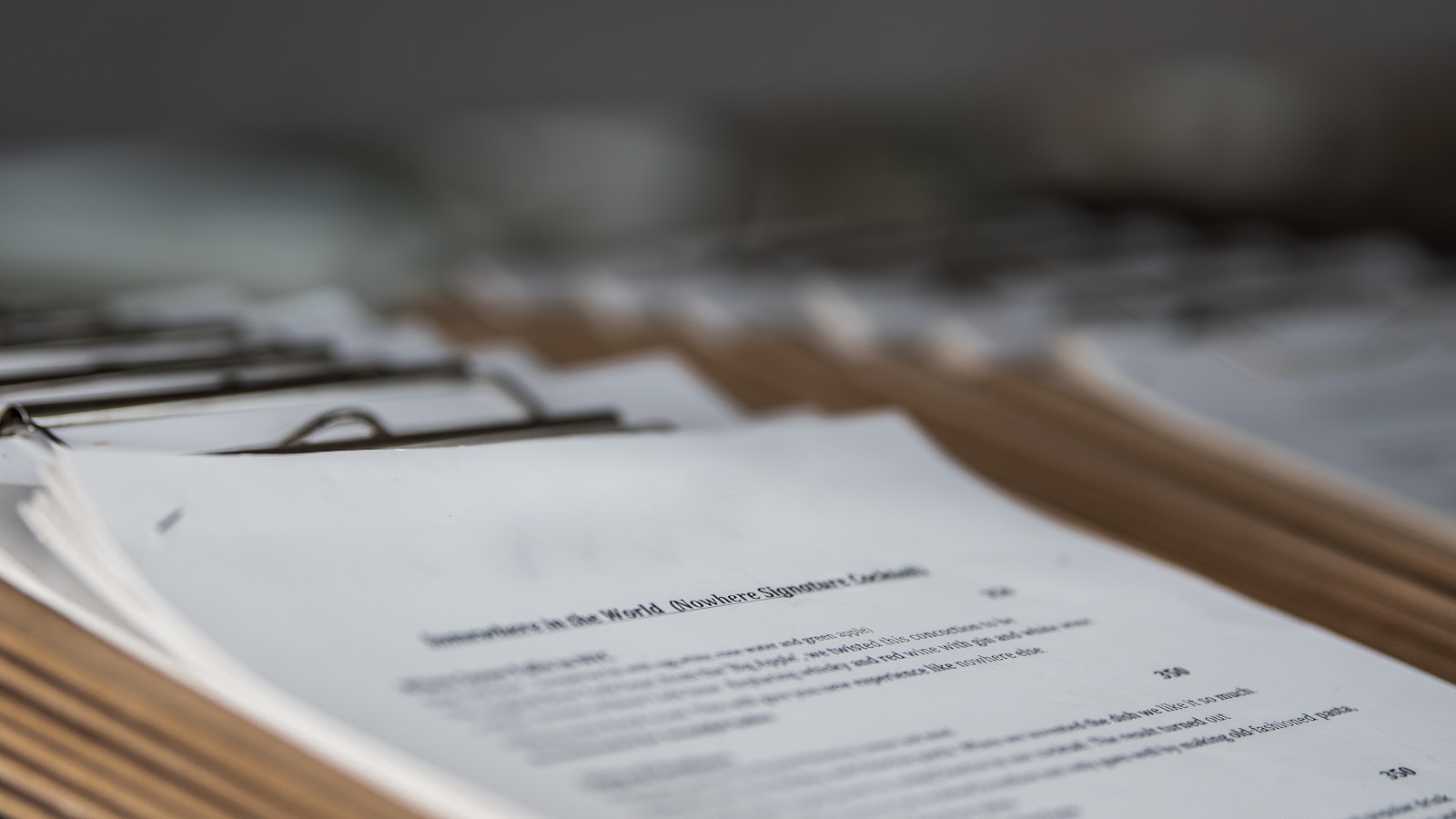
The boba market in the United States is expanding rapidly, attracting entrepreneurs who want to capitalize on its popularity through automation. One question appears again and again: do you need a license to sell boba with a boba tea vending machine? The short answer is yes, but the type and complexity of licensing depend on how your machine operates. This article explains exactly what is required, how to stay compliant, and why understanding these rules protects your investment.
Why Licensing Matters In Automated Beverage Sales
A boba tea machine is not a typical vending unit. It blends, shakes, and serves perishable drinks. Because it stores ingredients like milk and tapioca pearls, it falls under food safety regulations. Local health departments classify such food vending machines as micro food establishments. That means even if you are not physically present to serve customers, you are still responsible for cleanliness, safety, and proper operation.
Without proper permits, operators risk fines, machine removal, and denied placement in premium locations like airports, universities, or hospitals. Licensing also increases trust with landlords, corporate clients, and franchise partners. When your operation is compliant, it becomes easier to expand and secure financing for new vending machines in multiple states.
Basic Licenses Required For Boba Vending Machines
While licensing rules differ by state, most operators must hold the following:
- Business License: This is the foundation for all operations. You need it to legally trade and pay taxes in your city or county.
- Seller’s Permit: Required to collect and remit sales tax on every drink sold. It is issued by the state’s Department of Revenue.
- Vending Machine Operator Permit: In states such as Florida, Texas, and California, each machine must be registered under your business name.
- Food Service Establishment License: Since boba machines store and mix perishable ingredients, health departments often require food-handling certification or inspection.
- Location or Zoning Permit: Necessary if your boba tea vending machine will be installed in public or commercial venues that have strict operating rules.
Once you secure these, you can legally begin operating and expanding your vending routes. For beginners, a vending machine permits guide can help you find state-specific links and forms for easier registration.
What Makes Boba Vending Licensing Unique
Unlike snack or beverage machines, boba tea vending machines involve direct handling of food ingredients. They use internal refrigeration, heating systems, and topping dispensers. Because of this, the government views them as automated food prep units rather than standard drink machines.
- They must maintain temperature ranges that prevent spoilage, typically 35°F to 41°F for milk and toppings.
- They require routine cleaning schedules logged by the operator.
- Some states require a certified food manager to oversee machines remotely or through periodic inspections.
- Machines placed in airports or universities may also require location-specific authorization letters or partnership agreements.
For example, in California, any automated unit that mixes or holds milk products is subject to county health inspection. In New York and Illinois, each food vending unit must display a visible operator license number. These rules protect both the operator and the consumer by ensuring transparency and traceability.
How To Apply For Permits (Step-By-Step Process)
Applying for vending and food permits may sound complicated, but when broken down it becomes straightforward. Follow these steps to ensure your business is set up correctly from the start.
1. Register Your Business
Start by registering an LLC or corporation with your Secretary of State. Choose a business name that reflects your brand, such as “Metro Boba Vending.” Obtain an Employer Identification Number (EIN) from the IRS to open bank accounts and pay taxes.
2. Apply For A General Business License
Every state requires a local business license to operate legally. Apply through your county or city’s business office. The cost is typically between $50 and $200 depending on the region.
3. Get A Seller’s Permit
This allows you to collect and remit sales tax. For example, if your machine sells a $6 boba drink, you must charge and report sales tax to your state revenue agency. Most states offer online registration, often completed within one business day.
4. Obtain A Vending Machine Permit
Each machine may need its own registration number or sticker, which identifies your company as the responsible operator. The health or vending department will issue this once your business license is active.
5. Secure A Food Service Permit
This is the most critical part for boba vending. You must prove your boba tea vending machine is capable of maintaining safe food conditions. The health department may ask for your equipment specifications, cleaning procedures, and proof of refrigeration control. Machines should be NSF or UL certified for safety compliance.
6. Apply For Site Approval
Before installing your unit in malls, schools, or workplaces, you must get written permission from the property manager. Some states require the site itself to be approved by the health department if food is prepared on-site. The location inspection may check power connections, waste disposal, and accessibility.
Do You Need A Special License Because It’s Boba?
There is no dedicated “boba license,” but certain conditions can trigger additional approval. For instance, if your machine handles dairy products or fresh toppings, you may need to submit food safety documentation. Some jurisdictions require you to employ or contract a certified food manager who can verify sanitation compliance for automated systems.
Machines that only dispense sealed drinks, such as bottled milk tea or canned fruit tea, are often exempt from food service licensing because the beverages are pre-packaged. However, any boba tea machine that prepares, seals, and delivers fresh beverages falls under food establishment rules.
To avoid confusion, always describe your equipment accurately when applying. Mention whether your machine uses powder mixes, fresh milk, or refrigerated toppings. The more transparent you are, the faster your approval process will be.
Health And Sanitation Standards For Boba Machines
Health inspectors typically evaluate three main factors during review: cleanliness, temperature control, and ingredient safety. Here are common areas they check:
- Storage conditions for tea bases, powders, and toppings
- Temperature logs for milk and perishable ingredients
- Proper labeling of allergens like milk or soy
- Automated cleaning functions and maintenance logs
- Regular disposal of expired materials
Keeping proper documentation not only helps with inspections but also prevents shutdowns or product recalls. Modern new vending machines equipped with IoT and cloud monitoring can automatically record temperature, cleaning schedules, and ingredient use. This data can be shared with regulators during inspections, making compliance easier.
How Licensing Affects Location Strategy
Licensed and approved machines gain access to better locations. Malls, airports, and colleges prefer vending operators who can show proof of compliance. A boba tea vending machine with valid health and vending permits can be placed in prime, high-traffic zones where unlicensed machines would not qualify.
In addition, having verified documentation makes it easier to obtain insurance coverage and financing for expansion. Many lenders require proof of licensing before approving loans for new vending machines or upgrades.
Common Licensing Mistakes To Avoid
- Installing a machine before obtaining inspection clearance.
- Assuming one state’s license covers another—each state has different requirements.
- Failing to update your business license annually.
- Neglecting to label allergens or nutritional information.
- Ignoring temperature maintenance reports or cleaning logs.
Avoiding these mistakes protects your investment, ensures long-term placement stability, and builds stronger relationships with partners and customers.
Costs And Timelines For Getting Licensed
Licensing costs vary based on location and machine type. On average, expect to pay:
- Business registration: $100 – $300
- Seller’s permit: Free to $50
- Food service license: $250 – $600
- Health inspection: $100 – $300
- Vending registration: $25 – $100 per machine annually
The total setup cost for permits typically ranges between $500 and $1,200 for the first year. Processing time varies from one week to one month depending on the county workload. Once your paperwork is complete, renewals are usually automatic as long as your business remains in good standing.
Why Proper Licensing Increases Long-Term Profitability
Compliance directly affects profitability. Licensed operators can work with major venues, partner with franchise networks, and list their machines on commercial leasing platforms. It also minimizes downtime from inspections or complaints. By following the vending machine permits guide, operators can expand across states faster, manage machines through centralized cloud tools, and prove legitimacy to investors or clients.
With automation rising, many property managers prefer certified and insured operators. A boba tea vending machine that is fully licensed is easier to lease space for and attracts more reliable contracts from corporate and university locations.
Conclusion
So, do you need a license to sell boba through a vending machine? Yes. Any automated beverage unit that prepares or stores fresh ingredients must follow business, vending, and food service regulations. These rules are not obstacles—they are the foundation of a stable, scalable operation. Licensing protects your investment, builds credibility, and opens doors to better placement opportunities.
Whether you are starting with a single boba tea machine or scaling to multiple new vending machines, the process remains similar: register, inspect, and comply. Once complete, your operation will run smoothly, legally, and profitably. For detailed steps and downloadable resources, visit our vending machine permits guide to explore permit checklists and location compliance tools for every state.

